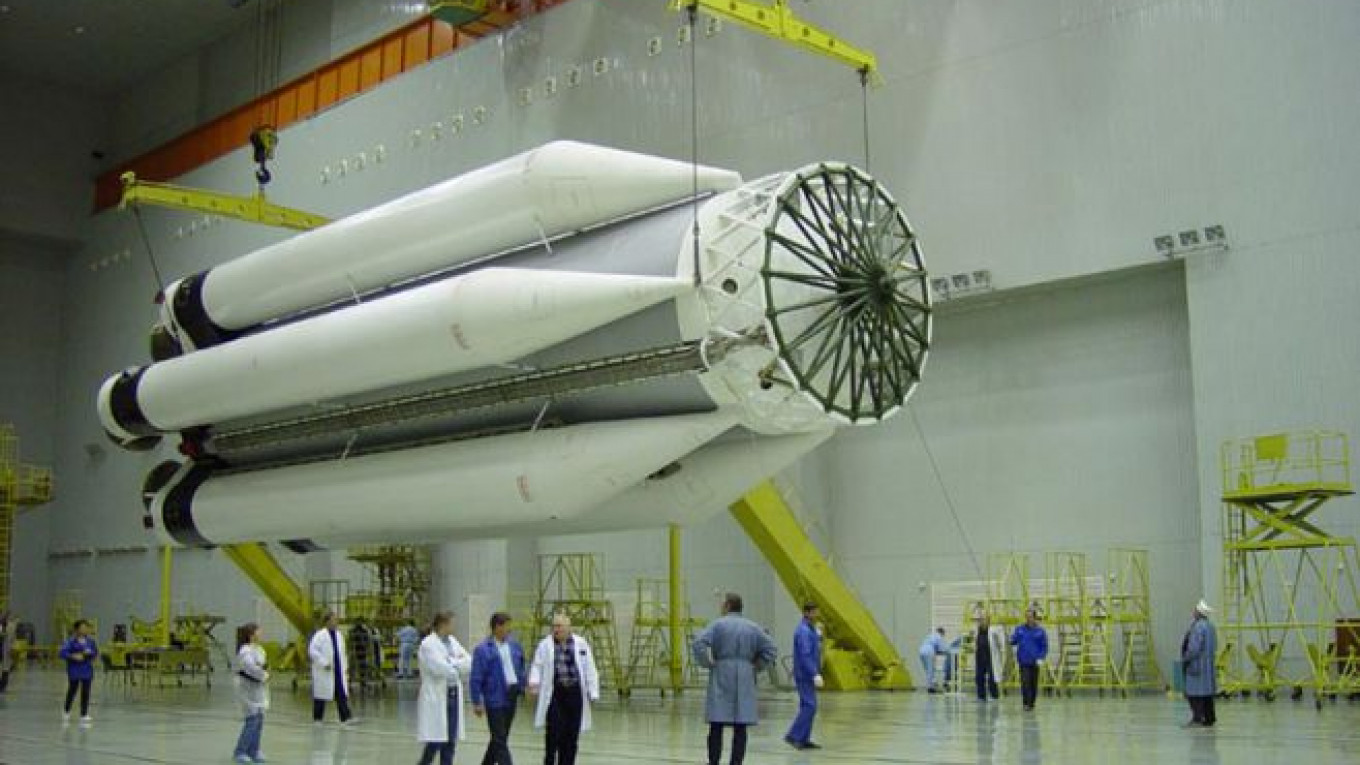In a bid to tackle the low productivity hobbling Russia's space industry, the state-owned conglomerate that spans the sector has proposed doubling wages and implementing incentive systems to triple the efficiency of its workforce.
The Soviet space program at its height in 1989 employed over a million people and accounted for 1.5 percent of Soviet gross domestic product. To work in the space sector was considered a plumb assignment.
But after years of industrial decay, low wages and brain drain, the industry is struggling to recruit fresh talent and move forward with new projects.
The space sector now has a reputation for being geriatric and, at times, incompetent — many scoffed last year, when a Proton-M rocket crashed shortly after launch because its guidance computer's sensors were installed upside down.
United Rocket and Space Corporation (URSC) was created by presidential decree earlier this year in response to that crash. It has been tasked with reforming and consolidating most of the industry under its auspices. Reforms are expected to begin next year, and by 2016 the numerous companies that make up Russia's space sector will employ 196,000 people, the corporation said in a statement on Friday.
“By 2025 plans are to increase productivity threefold, while real wages will double,” the statement said.
According to the corporation, which bills itself as “a socially responsible employer,” the planned productivity improvements hinge on the development of “a motivation system based on key performance indicators,” as well as housing and pension programs.
Although a single space industry employee brings his employer on average 1.6 million rubles ($32,000) in revenue, monthly salaries are around 44,500 rubles a month ($900), or just over $10,000 a year, the corporation said. The average Russian salary is just over 30,000 rubles a month.
URSC is also pledging to take recruitment of young talent seriously by creating special programs to attract young talent to work on challenging and interesting projects, increasing spending on training threefold by 2016.
“Young people are a necessary component of any high-tech industry,” the corporation said.
The average age of an employee in the Russian space industry is currently 45.4 years, the corporation said. In comparison, at the California-based space startup Space Exploration Technologies (SpaceX) — considered by many to be the world's most exciting and innovative space firm — the average age of an engineer is reported to be between 26 and 30.
It should be said, however, that average age in the entire U.S. aerospace industry — which includes both aviation and space production — is 47. The average salary meanwhile is over $117,000, Fortune magazine reported last year.
If the U.S. space industry is taken alone, the average age is higher, with 43 percent of the workforce over the age of 50, according to a report issued by the U.S. Department of Commerce in May.
Contact the author at bizreporter@imedia.ru
A Message from The Moscow Times:
Dear readers,
We are facing unprecedented challenges. Russia's Prosecutor General's Office has designated The Moscow Times as an "undesirable" organization, criminalizing our work and putting our staff at risk of prosecution. This follows our earlier unjust labeling as a "foreign agent."
These actions are direct attempts to silence independent journalism in Russia. The authorities claim our work "discredits the decisions of the Russian leadership." We see things differently: we strive to provide accurate, unbiased reporting on Russia.
We, the journalists of The Moscow Times, refuse to be silenced. But to continue our work, we need your help.
Your support, no matter how small, makes a world of difference. If you can, please support us monthly starting from just $2. It's quick to set up, and every contribution makes a significant impact.
By supporting The Moscow Times, you're defending open, independent journalism in the face of repression. Thank you for standing with us.
Remind me later.


